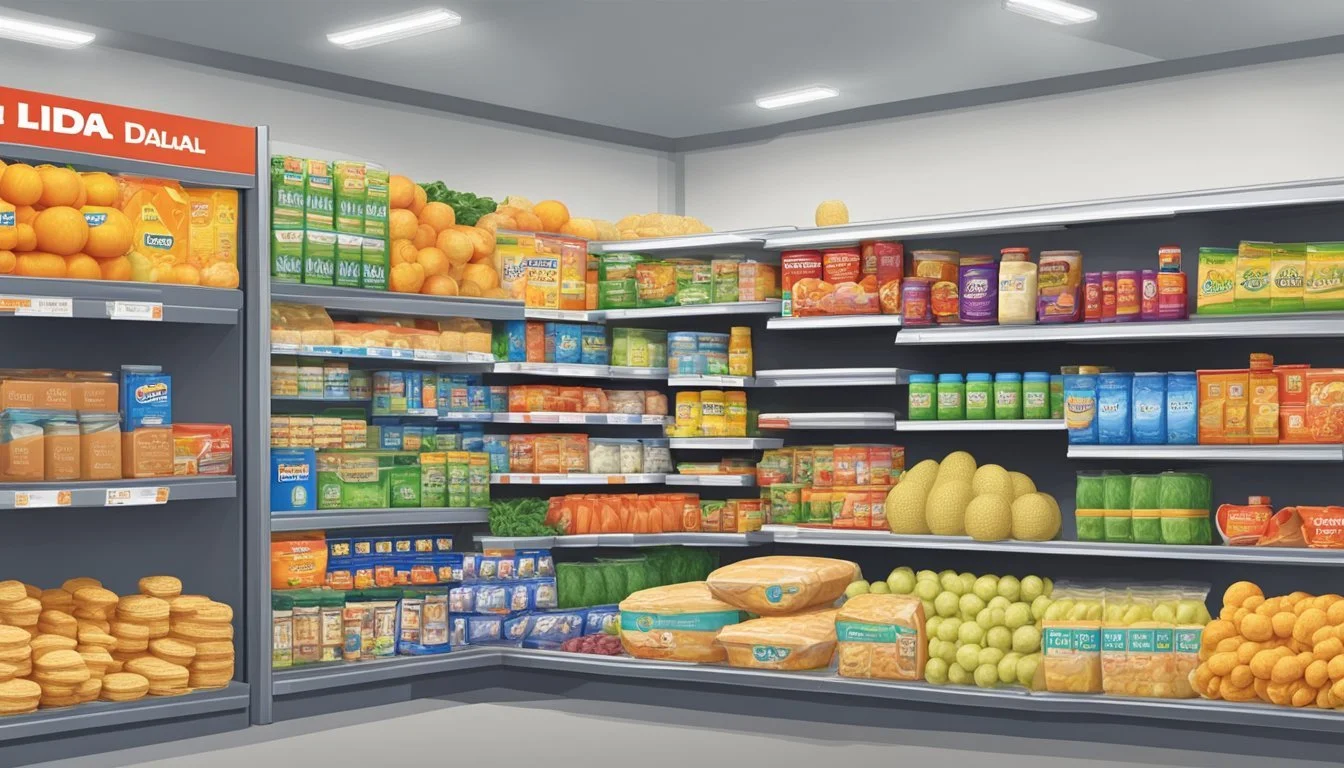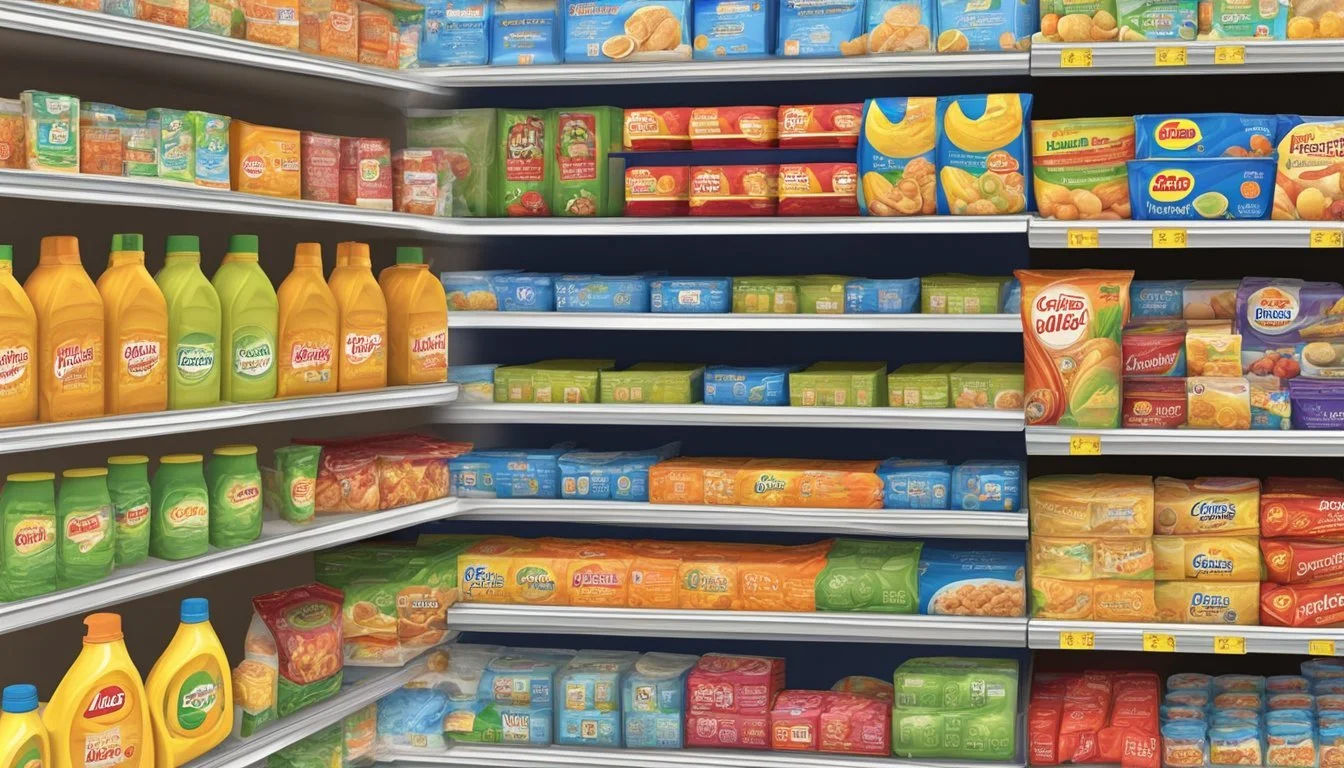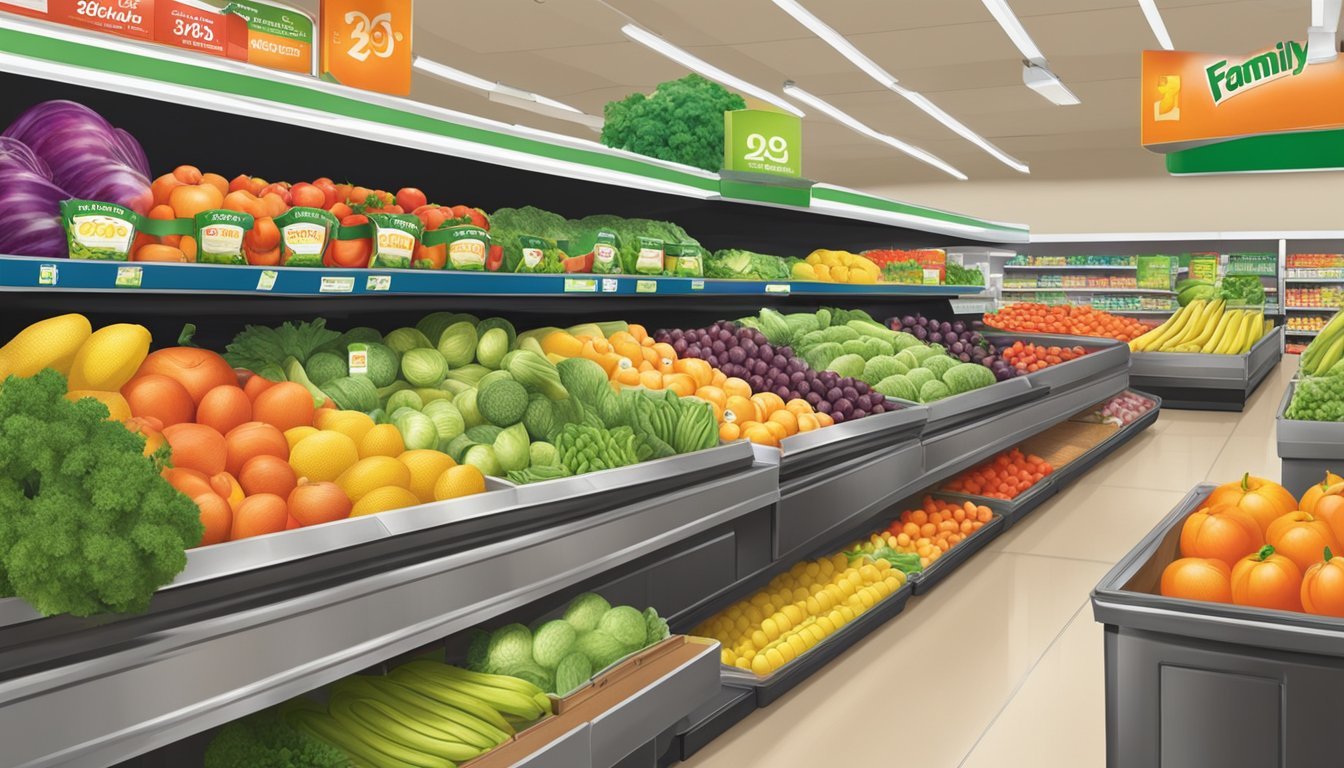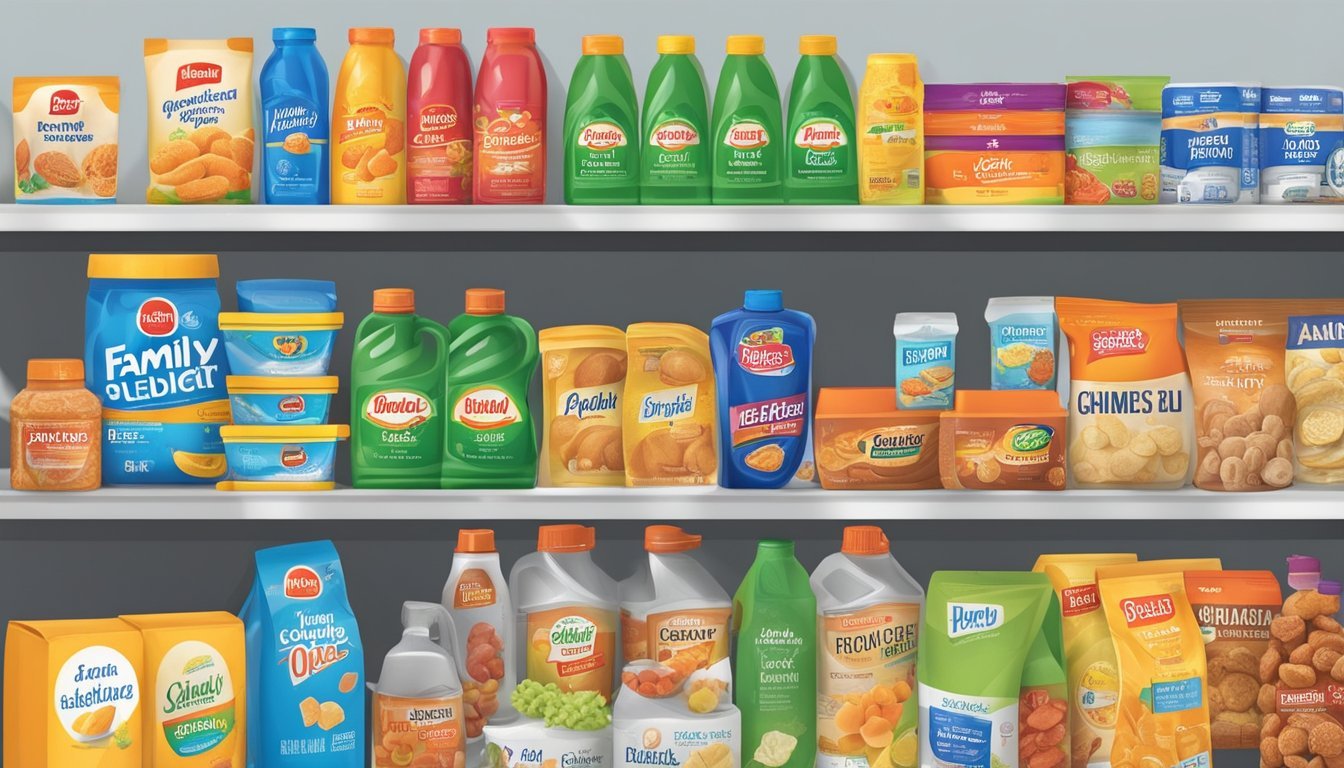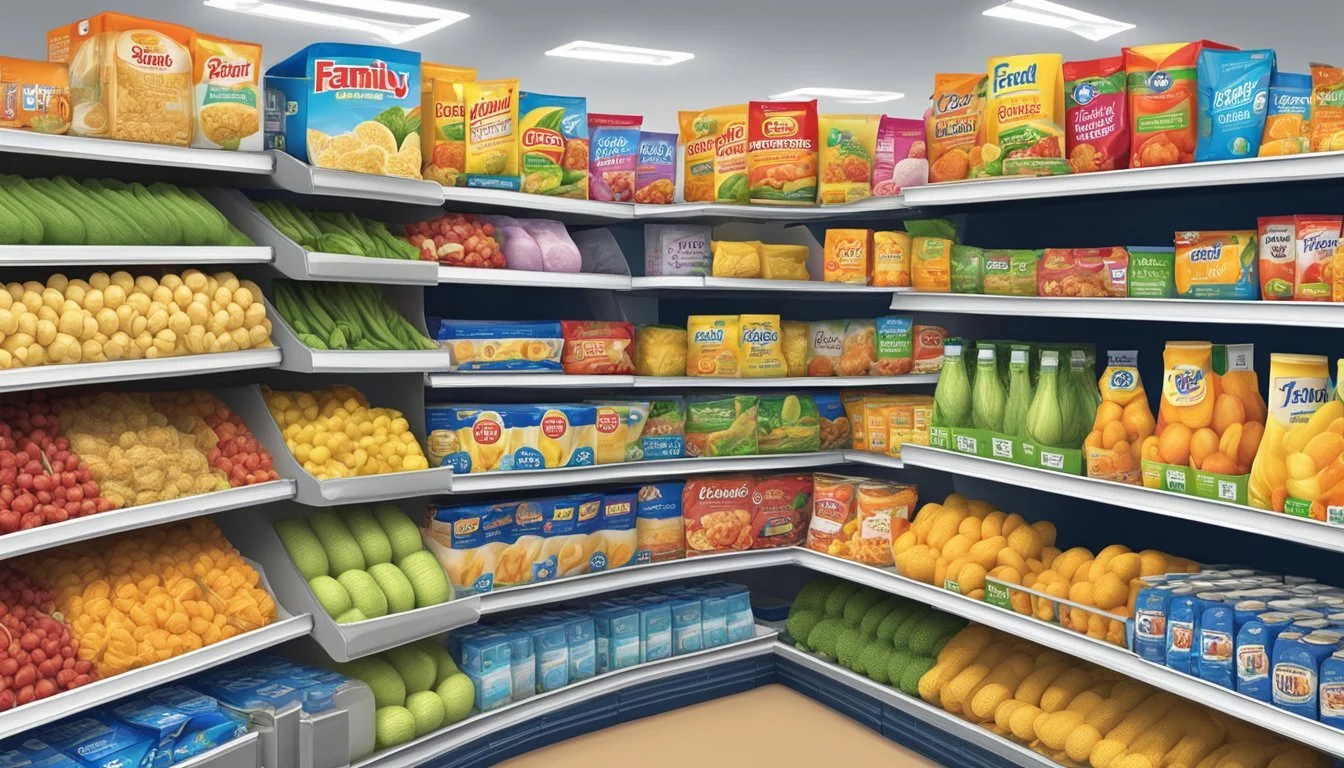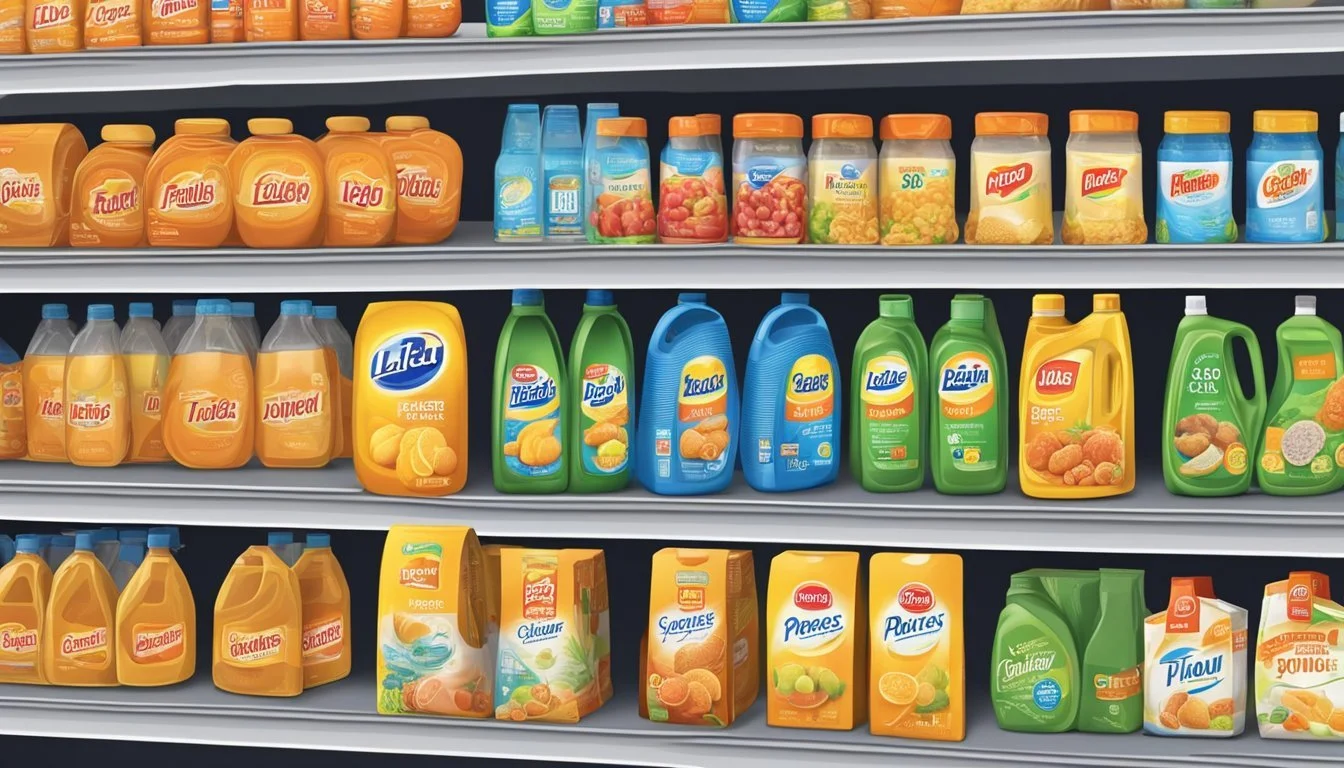Is Family Dollar Cheaper Than Lidl?
A price comparison of budget stores
When comparing grocery stores, price is often a top consideration for many shoppers. Family Dollar and Lidl are two popular options known for their affordable prices. While both aim to provide value, they differ in their product offerings and shopping experiences.
Generally, Lidl tends to be cheaper than Family Dollar for groceries and everyday essentials. Lidl, a German discount supermarket chain, focuses primarily on groceries and offers a wide range of high-quality products at competitive prices. Family Dollar, on the other hand, is a variety store that carries a mix of household goods, groceries, and other items.
Lidl's business model allows them to keep prices low by offering a more limited selection of products, many of which are their own private-label brands. This approach, combined with efficient operations, enables Lidl to provide significant savings to customers on their grocery bills compared to traditional supermarkets and variety stores like Family Dollar.
Overview of Family Dollar and Lidl
Family Dollar and Lidl are prominent discount retailers with distinct approaches to offering affordable products. Both aim to provide value to budget-conscious shoppers but differ in their origins, strategies, and product selections.
History and Business Models
Family Dollar began operations in 1959 in Charlotte, North Carolina. It focuses on providing everyday essentials at low prices in neighborhood locations. The company operates as a subsidiary of Dollar Tree since 2015.
Lidl, founded in 1973 in Germany, expanded internationally and entered the U.S. market in 2017. It employs a hard discount model, emphasizing efficiency and low prices across a curated product range.
Family Dollar maintains a traditional discount store format with a wide array of items. Lidl operates as a discount grocer, offering a streamlined selection of groceries and rotating non-food items.
Store Presence and Demographics
Family Dollar boasts over 8,000 stores across 46 U.S. states. Its locations are typically found in urban and rural areas, often serving lower-income communities.
Lidl has a smaller U.S. presence, with around 170 stores concentrated in East Coast states. The chain targets a broader demographic, appealing to middle-income shoppers seeking quality at low prices.
Family Dollar stores are generally smaller, averaging 7,000-9,000 square feet. Lidl stores are larger, around 20,000 square feet, providing a more spacious shopping environment.
Product Offerings and Brands
Family Dollar carries a mix of national brands and private label products. Its inventory includes:
Household essentials
Personal care items
Packaged foods
Cleaning supplies
Seasonal merchandise
Lidl emphasizes private label products, which make up about 80% of its stock. Its offerings include:
Fresh produce
Bakery items
Meat and dairy
Wine and beer
Non-food items (limited selection)
Both retailers offer competitive prices, but Lidl focuses more on fresh groceries and perishables.
Quality and Selection
Family Dollar provides a broader selection of non-food items and household goods. Its product quality varies, with a mix of budget and mid-range options.
Lidl prioritizes quality in its limited assortment, particularly in fresh produce and private label goods. The chain has won awards for its wines and bakery items.
Family Dollar's selection caters to immediate needs and convenience. Lidl's curated range focuses on essential groceries and rotating specialty items.
Both stores offer low prices, but Lidl's emphasis on quality and fresh foods may appeal to shoppers seeking value beyond just low costs.
Price Comparison
Family Dollar and Lidl employ distinct pricing strategies to attract budget-conscious shoppers. Both aim to offer competitive prices, but their approaches differ in key ways.
Pricing Strategies
Family Dollar focuses on everyday low prices across a wide range of household items and groceries. They keep costs down by offering mostly private label and lesser-known brands. Lidl, on the other hand, uses a limited assortment model. They stock fewer items but negotiate aggressively with suppliers to secure lower prices.
Lidl's stores are designed for efficiency, reducing operational costs. This allows them to pass savings on to customers. Family Dollar maintains a larger network of smaller stores, often in areas underserved by other retailers.
Comparison Across Common Items
When comparing common grocery items, Lidl generally offers lower prices than Family Dollar. For staples like rice, pasta, and eggs, Lidl's prices are often 10-20% less. Here's a quick comparison:
Item Lidl Family Dollar Milk (1 gal) $2.39 $2.95 Eggs (dozen) $1.79 $2.25 Bread $0.89 $1.25
Lidl's meat and cheese selections are typically priced lower and offer higher quality. However, Family Dollar may have better prices on some packaged goods and non-food items.
Discounts and Coupons
Both stores offer ways to save money beyond shelf prices. Family Dollar provides weekly ads with special deals and digital coupons through their app. They also have a "Smart Coupons" program for additional savings.
Lidl runs weekly specials on select items, often featuring deep discounts on fresh produce. They don't accept manufacturer coupons but offer their own digital coupons and a rewards program in some locations.
Family Dollar's more extensive coupon options can lead to significant savings for savvy shoppers. Lidl's discounts tend to be straightforward, with no need for extensive coupon clipping.
Quality and Freshness of Produce
Family Dollar and Lidl offer different approaches to fresh produce. Their quality standards and selection vary, impacting shoppers' choices for fruits and vegetables.
Fresh Produce Offerings
Lidl provides a wider range of fresh produce compared to Family Dollar. Lidl stocks sweet bell peppers, cabbage, Bartlett pears, raspberries, and mini avocados. Their produce section often includes organic options like organic pears. Family Dollar's fresh produce selection is more limited, focusing on basic fruits and vegetables.
Lidl rotates seasonal produce, ensuring variety throughout the year. They often feature weekly specials on popular items. Family Dollar typically carries staple produce items with less variety.
Quality Standards
Lidl maintains higher quality standards for its produce. They prioritize freshness, often sourcing from local suppliers when possible. Lidl's produce undergoes regular quality checks to ensure it meets their standards.
Family Dollar's produce quality can be inconsistent. As a discount store, their focus is more on affordability than premium quality. However, they do strive to offer fresh options within their price range.
Lidl's commitment to quality extends to their storage and display practices. They use temperature-controlled areas to maintain freshness. Family Dollar's produce storage may vary by location, potentially affecting quality.
Availability of Specialty Items
Family Dollar and Lidl differ significantly in their specialty item offerings. This impacts the variety and uniqueness of products available to shoppers at each store.
Ethnic and Specialty Foods
Lidl excels in offering a diverse range of ethnic and specialty foods. The store regularly stocks Asian cooking sauces, frozen Asian and Indian chicken and rice meals, and various international spices. These items cater to customers seeking authentic flavors from around the world.
Family Dollar's selection of ethnic foods is more limited. While they may carry some basic international ingredients, the variety and authenticity are not comparable to Lidl's offerings.
Limited-Time Offers
Lidl is known for its rotating selection of limited-time products. These "specials" often include unique food items, kitchenware, and seasonal goods. Shoppers can find specialty chocolates, wines, and gourmet foods during these promotions.
Family Dollar occasionally offers special buys, but these are typically focused on household goods rather than gourmet or specialty food items.
Specialty Brands
Lidl carries a mix of well-known brands and its own private label products in the specialty category. Shoppers can find items like spicy brown mustard, roasted garlic spreads, and marinara pasta sauces from both national and Lidl-exclusive brands.
Family Dollar's specialty brand selection is more limited. The store focuses primarily on everyday essentials and carries fewer gourmet or artisanal products. When specialty items are available, they are often from lesser-known brands or the store's own label.
Convenience and Shopping Experience
Family Dollar and Lidl offer distinct shopping experiences that impact customer convenience. Store layouts and checkout processes play key roles in shaping the overall efficiency of each retailer.
Store Layout and Navigation
Family Dollar typically features a rectangular layout with aisles organized by product categories. Signage directs shoppers to specific departments. The stores are compact, making it easy to find items quickly. Seasonal merchandise is often prominently displayed near the entrance.
Lidl employs an open floor plan with a racetrack layout. Wide aisles and pallet displays create a warehouse-like atmosphere. Fresh produce is positioned near the entrance. The center aisles house rotating non-food items, which can make finding specific products challenging for some shoppers.
Checkout Efficiency
Family Dollar utilizes traditional checkout lanes with conveyor belts. Self-checkout options are limited. During peak hours, lines can form due to fewer open registers. The chain accepts various payment methods, including cash, credit cards, and EBT.
Lidl emphasizes speed at checkout. Stores feature multiple registers with efficient scanning systems. Cashiers are trained to process transactions quickly. Self-checkout kiosks are available in many locations. Lidl's "bring your own bag" policy and shelf-ready packaging contribute to faster checkout times.
Impact on Budget
Family Dollar and Lidl can significantly affect household finances through their pricing strategies and product offerings. Shoppers' budgets are influenced by the cost savings and spending patterns at these stores.
Cost Savings for Shoppers
Family Dollar offers discounted prices on a variety of household items and groceries. Their product selection includes many budget-friendly options, helping shoppers stretch their dollars. Lidl, on the other hand, focuses on providing high-quality groceries at competitive prices. The German discount grocer often beats traditional supermarket prices by 20-30% on many items.
Lidl's produce prices are particularly attractive. For example, they offer a 3-pack of sweet bell peppers for $2.49 and cabbage for only $0.45 per pound. These low prices on fresh fruits and vegetables can lead to substantial savings for health-conscious shoppers on a budget.
Budgeting for Groceries
Planning grocery expenses becomes easier with the predictable pricing at both Family Dollar and Lidl. Family Dollar's consistent pricing across many non-perishable items allows for accurate budget forecasting. Lidl's weekly specials and rotating stock of seasonal items provide opportunities for additional savings.
During the current cost of living crisis, both stores offer relief for strained household budgets. Lidl's focus on private-label products often results in lower prices compared to national brands. Family Dollar's smaller store format can help shoppers avoid impulse purchases, potentially lowering their overall grocery bill.
By incorporating both stores into their shopping routine, consumers can optimize their grocery budget and better manage personal finances. This strategic approach to shopping can be particularly beneficial for those looking to maintain a healthy diet while keeping costs in check.
Comparison with Other Retailers
Family Dollar and Lidl operate in a competitive retail landscape alongside other discount chains and supermarket alternatives. Their pricing and offerings can be compared to various budget-friendly options available to consumers.
Discount Retailer Landscape
Family Dollar competes directly with other dollar store chains like Dollar General and Dollar Tree. These stores typically offer similar product ranges at comparable price points. Lidl, as a discount grocer, faces competition from Aldi, its closest rival in the U.S. market.
Aldi edges out Lidl slightly on overall affordability. A study found Aldi's average weekly grocery cost to be $43.48, while Lidl's was $54.24. This $10.76 difference could be significant for budget-conscious shoppers.
Both Lidl and Aldi provide substantial savings compared to traditional supermarkets. Their limited-assortment model and focus on private label products allow them to keep prices low.
Supermarket Alternatives
Walmart and Target serve as key alternatives for budget shoppers seeking a wider product range. These retailers often price-match and offer their own low-cost store brands to compete with discounters.
Warehouse clubs like Costco and Sam's Club provide bulk buying options that can result in long-term savings for families. Regional chains such as WinCo Foods, Market Basket, and H-E-B are known for competitive pricing in specific areas.
Grocery Outlet and Food 4 Less cater to bargain hunters with discounted brand-name products. These stores often have changing inventories, which can appeal to shoppers looking for deals on specific items.
Family Dollar and Lidl's pricing strategies aim to attract cost-conscious Americans. Their success depends on maintaining competitive pricing while balancing product quality and variety.
Consumer Strategies
Smart shopping tactics can help maximize savings when choosing between Family Dollar and Lidl. Careful planning and awareness of promotions are key to stretching budgets further.
Maximizing Value on Purchases
Compare unit prices rather than package prices to identify true bargains. Buy in bulk for frequently used items when prices are low. Focus on store brands, which often match national brand quality at lower costs.
Create a shopping list and stick to it to avoid impulse purchases. Shop with a full stomach to reduce temptation. Consider carpooling with neighbors to save on gas when visiting more distant stores.
Mix and match between Family Dollar and Lidl based on each store's strengths. Family Dollar may offer better deals on household goods, while Lidl often has lower prices on fresh produce and meats.
Utilizing Ads and Promotions
Sign up for email newsletters and mobile apps from both chains to receive exclusive coupons and sale alerts. Follow their social media accounts for flash deals and contests.
Study weekly circulars to plan purchases around sales cycles. Stock up on non-perishables when prices hit rock bottom. Take advantage of buy-one-get-one offers on items you regularly use.
Look for clearance sections in both stores for deeply discounted items. At Family Dollar, check endcaps for markdowns. At Lidl, visit the "Middle of Lidl" section for limited-time special buys.
Time shopping trips strategically. Family Dollar often has new sales on Saturdays, while Lidl releases weekly specials on Wednesdays.
Additional Services and Departments
Family Dollar and Lidl offer distinct additional services and departments beyond their core grocery selections. These areas provide customers with convenient options for bakery goods, deli items, and household essentials.
Bakery and Deli Services
Lidl features an in-store bakery section with fresh-baked goods daily. Customers can find a variety of breads, pastries, and desserts. The bakery often offers specialty items like artisanal loaves and seasonal treats.
Lidl's deli selections include sliced cheeses, cured meats, and prepared salads. Many stores have a hot food counter with rotisserie chickens and other ready-to-eat meals.
Family Dollar typically does not have full-service bakery or deli departments. They may stock pre-packaged baked goods and deli items, but these are not prepared on-site.
Household and Non-Food Items
Both stores carry household and non-food items, but with different emphases. Family Dollar offers a wide range of home goods, cleaning supplies, and personal care products. Their selection often includes toilet paper, paper towels, and basic kitchen items.
Lidl's non-food section is more limited but frequently features special buys on home items, clothing, and seasonal products. These rotate regularly, providing new options each week.
Family Dollar stocks a consistent selection of household basics year-round. Lidl, while having fewer everyday non-food items, often provides higher-quality or unique products during promotional periods.
Conclusion
Family Dollar and Lidl offer different shopping experiences and product selections. Family Dollar focuses on general merchandise and basic groceries, while Lidl emphasizes fresh produce and European-style products.
Pricing comparisons between the two stores can vary depending on specific items and locations. Lidl often provides competitive prices on fresh foods and specialty products.
Family Dollar may have an edge on convenience items and household goods. Their widespread presence in urban and rural areas makes them more accessible for many shoppers.
Both stores aim to provide value, but cater to different consumer needs. Family Dollar serves as a quick stop for everyday essentials. Lidl offers a more comprehensive grocery shopping experience.
The choice between Family Dollar and Lidl ultimately depends on individual preferences, shopping habits, and proximity to store locations. Budget-conscious consumers may benefit from comparing prices at both retailers for their specific shopping lists.

